本文由OBBA授权mooool发表,欢迎转发,禁止以mooool编辑版本转载。
Thanks OBBA for authorizing the publication of the project on mooool, Text description provided by OBBA.
OBBA:从什么时候开始,我们城市的面貌失去了特色?公寓建筑单调的外观包围着城市,满是汽车的街道逐渐变成了沉闷的停车场。街道与建筑被一堵无形的墙隔开,房屋之间的空间也变得模糊不明,无法辨认。
OBBA:When did this happen? The faces of our city have lost their characters. Dull façade of apartment buildings surrounds city and streets full of cars are gradually turning into a dreary parking lot. The moment where a street meets a building is cut off by a faceless wall and the space between houses has turned into unidentifiable space with a wall separating them.
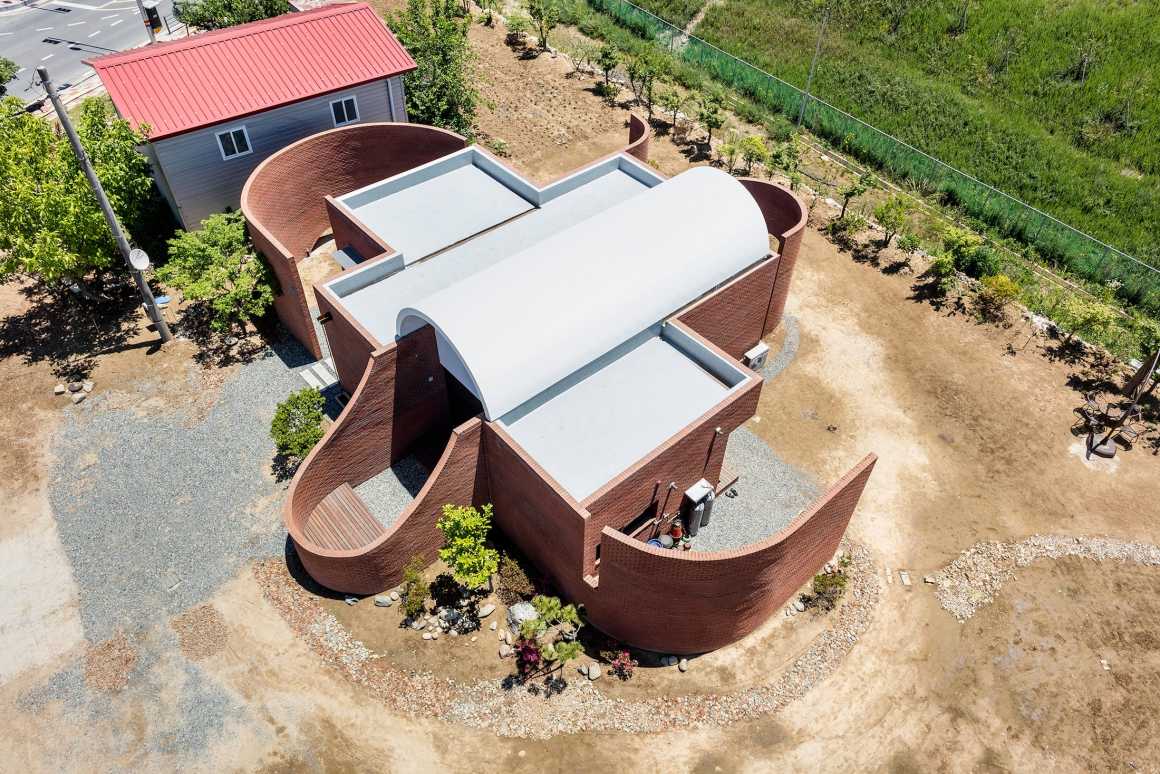
如果你仔细研究一下墙的定义,你就会明白它是一种定义边界建筑结构,主要是为了保护内部不受外部的侵扰,并为保护个人隐私而阻挡外部的视线。那么界定边界的墙应该定义在什么和什么之间?墙的区别在于什么?墙是用来区分我私有土地的边界,还是用来炫耀我的身份?还是因为它的功能并不重要可以随意使用?
If you look into the definition of a wall, it is an architectural structure designed to protect inside from outside primarily from intrusion, to define a boundary and to block views from outside for personal privacy. Between what and what is a wall defining a boundary? From what does a wall distinguish something? Is a wall used to distinguish the boundaries of my private land, or to show off my status? Or is it used carelessly regardless of its function?

该项目是位于庆尚南道哈东比帕里的一个82平方米的小房子。在这镇上土生土长的三个50多岁的兄弟,现在和自己的家人一起住在城里,他们希望为他们年迈的母亲在原来老房子处建一所新房子。
The project is a small house of 82 m2, in Bipa-ri, Hadong in Gyeongsangnamdo. Three brothers in their 50s who were born and raised in the town but now live with their own family in the city wished to build a new house for their elderly mother on where the old house used to be.
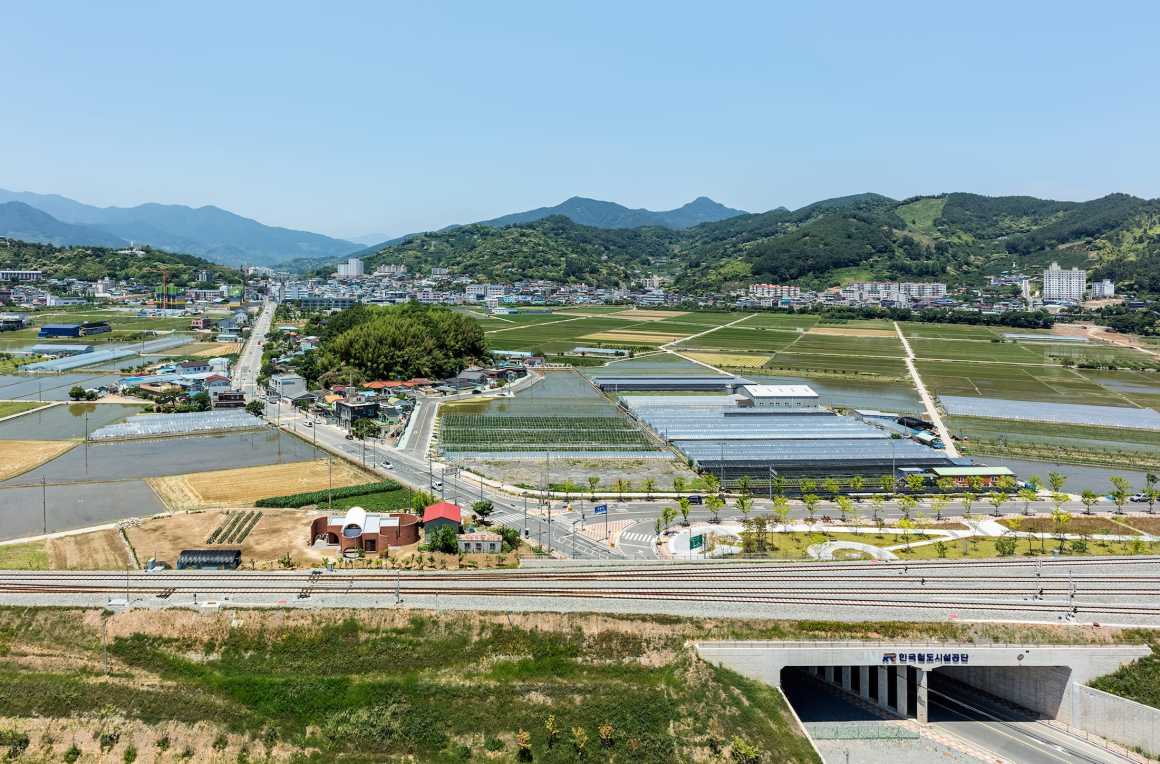
场地的四周基本上都是无边无际的农田。然而,比帕岛通常以它东南部经过的火车以及它西北部森林的绿色松树而令人印象深刻。
The site is basically surrounded by endless farmland on its all sides. However, trains pass by on its Southeast and Bipa Island boasts its small but impressive forest of green pine trees all year round on its Northwest.
▼效果图 Perspective
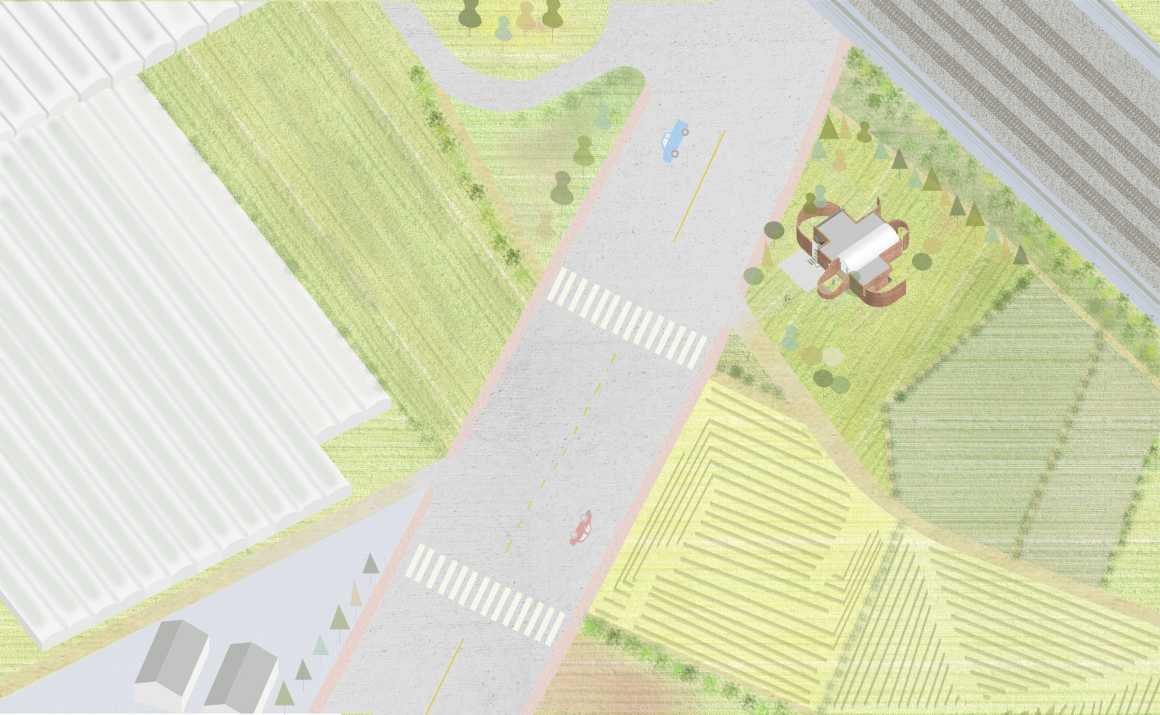
这个项目最大的挑战是如何定义私人空间和乡村其他空间之间的关系。在乡村,所有的空间都对农田开放,围墙通常都·沿整个场地的边界设置,远离实际房屋位置。然而,在这种情况下,我们选择将围墙作为建筑的一部分,以便在私人空间和公共空间之间创建几种类型的过渡空间。
Our biggest concern about this project was defining the relationship between private space and the rest in a countryside where all sides are open to crop fields. Fence wall is generally installed along the boundary of the entire site, away from the actual house. In this case, however, we incorporated the fence wall as a part of the building in order to create several types of intermediate/transitory space between private and public space.
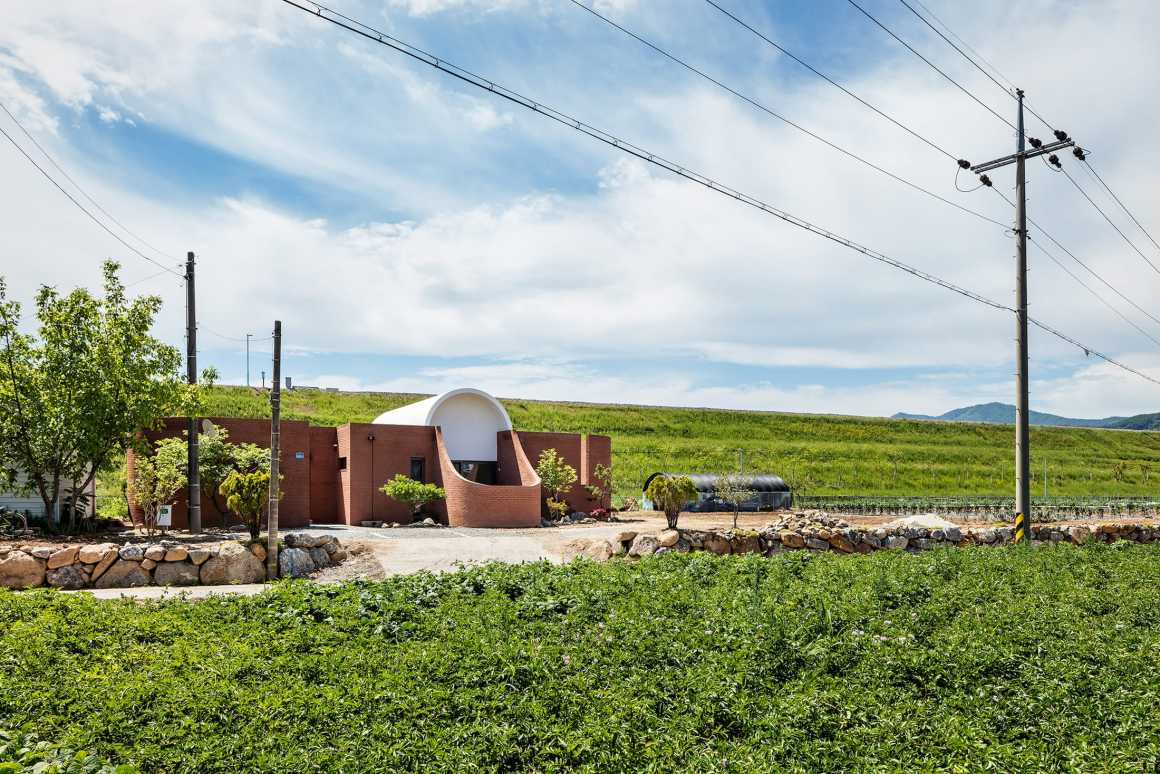
这座建筑物看起来很神秘,一般很难分辨出哪个是主入口,或者房子是如何布局的。曲线形的砖墙环绕着房子,一个优雅、整洁、有序的入口就隐藏在砖墙的裂缝旁。
The building has an enigmatic face. It is difficult to tell which is the main entrance or how is the house arranged. Curvilinear brick walls wrap around the house and an elegant/neat/orderly entrance is hidden next to a slit on the brick wall.
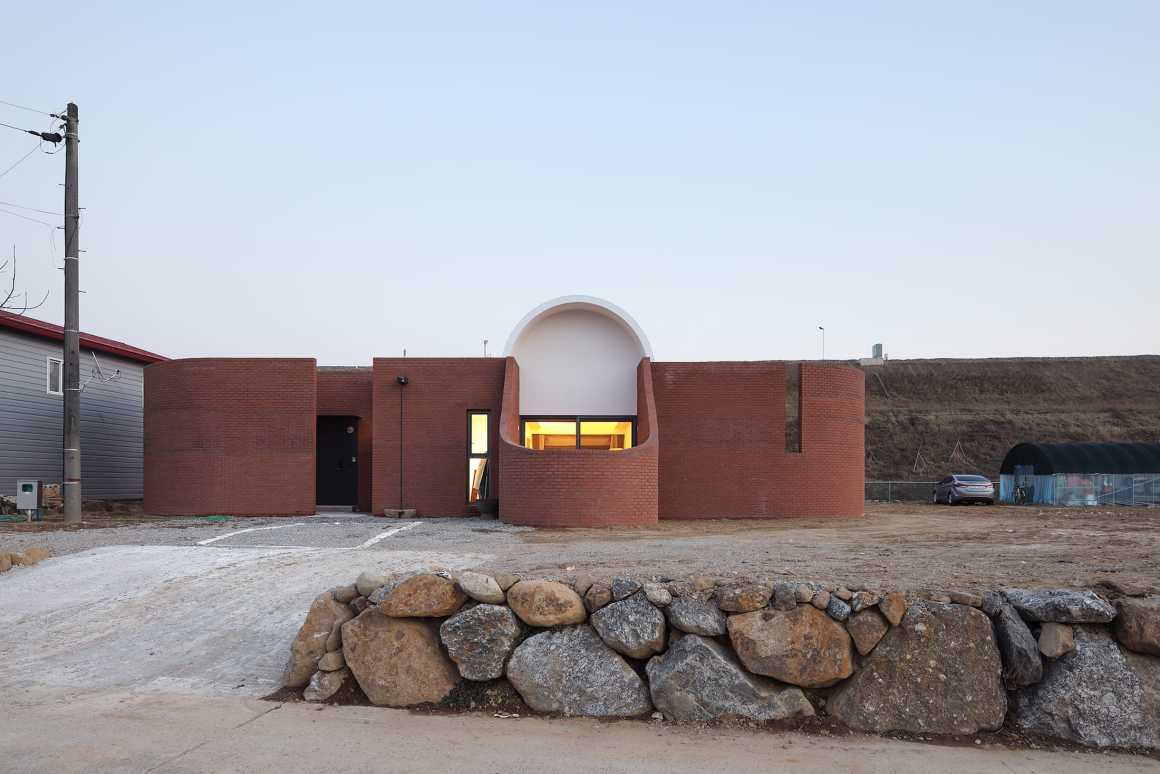
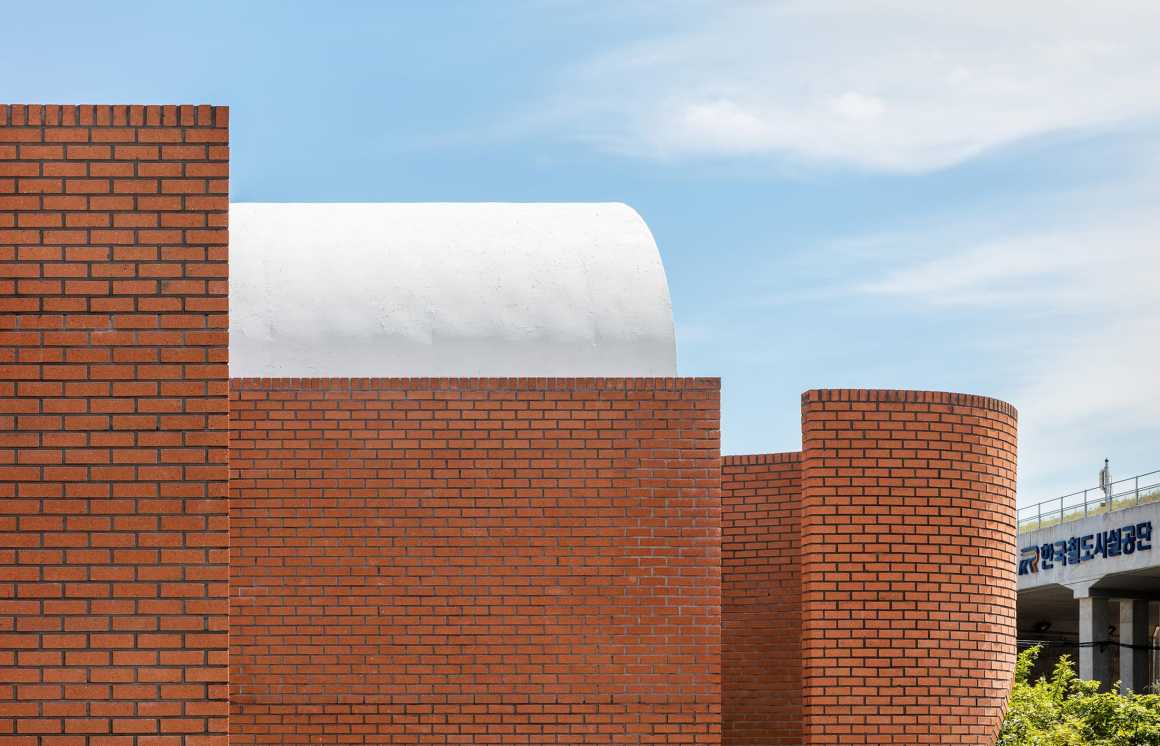
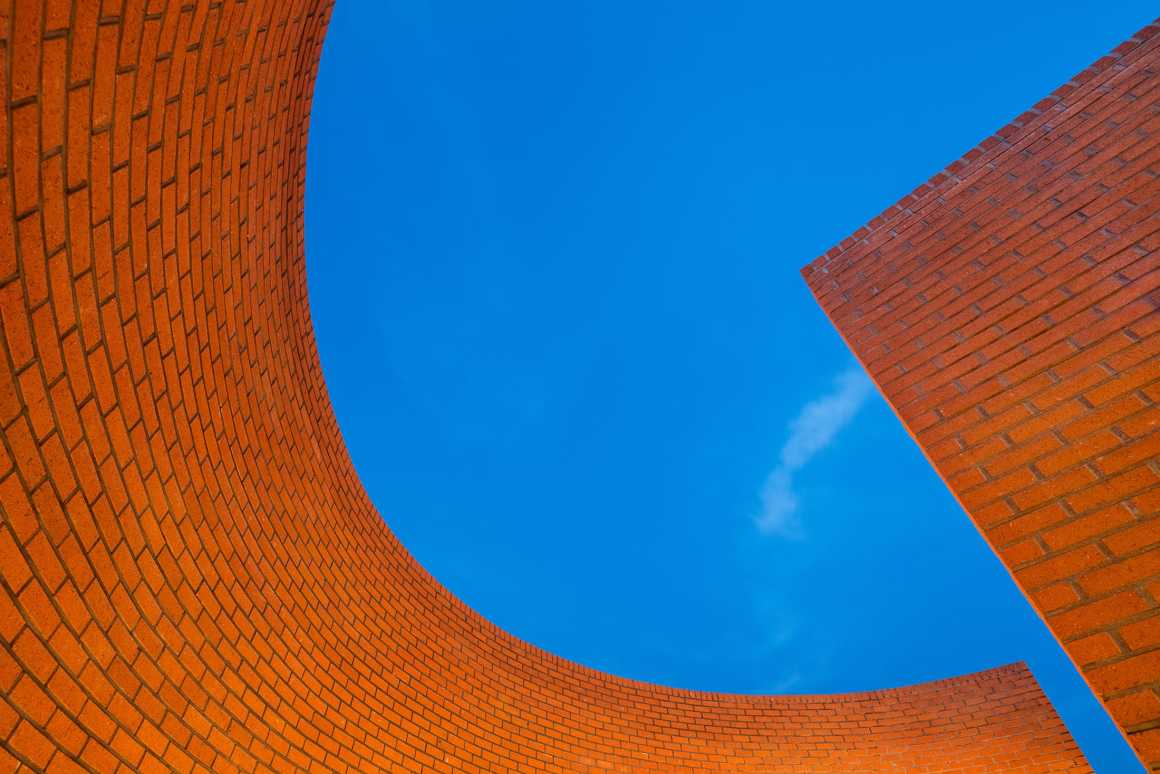
该住宅由一间朝南、北开敞的客厅、一间主卧和两间客房组成。客厅的每一端都有一个由弯曲的砖墙组成的小花园。北面弯曲的墙壁顶部有一个拱形开口,从客厅可以看到比帕岛(Bipa Island)的绿色景观。南面的砖墙底部有拱形开口,可以阻挡来自铁路的风和噪音,同时这个开口在视觉上和物理上将空间和墙后的后院连接了起来。
The house is composed of a living room with generous openings toward the North and South, and a master bedroom and two guest bedrooms on the East. Each end of the living room has a small pocket garden formed by the curvy brick walls. The curvy wall on the North has an arch shaped opening on top that allows view toward the greens of Bipa Island from the living room. The one on the South with an arch shaped opening on the bottom blocks wind and noise from the railroad while the opening visually and physically connects the space with the backyard behind the wall.
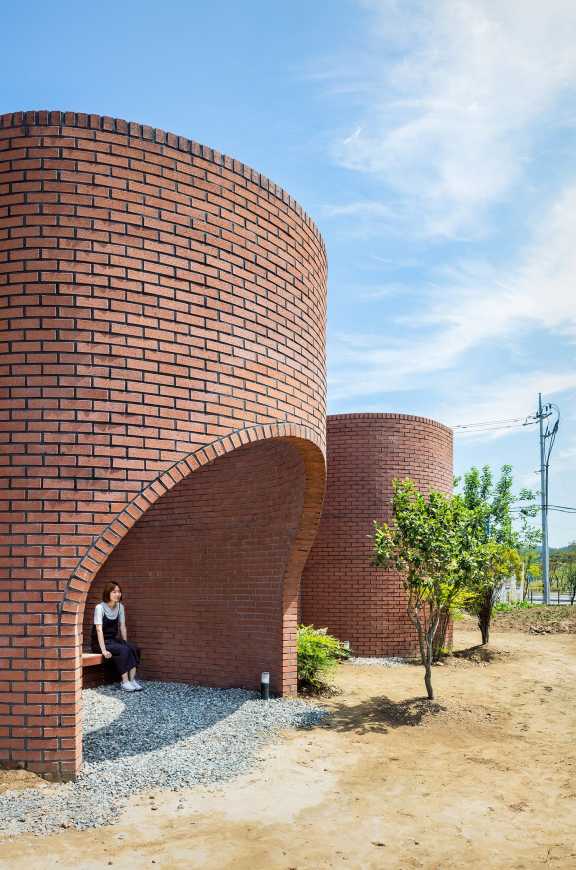
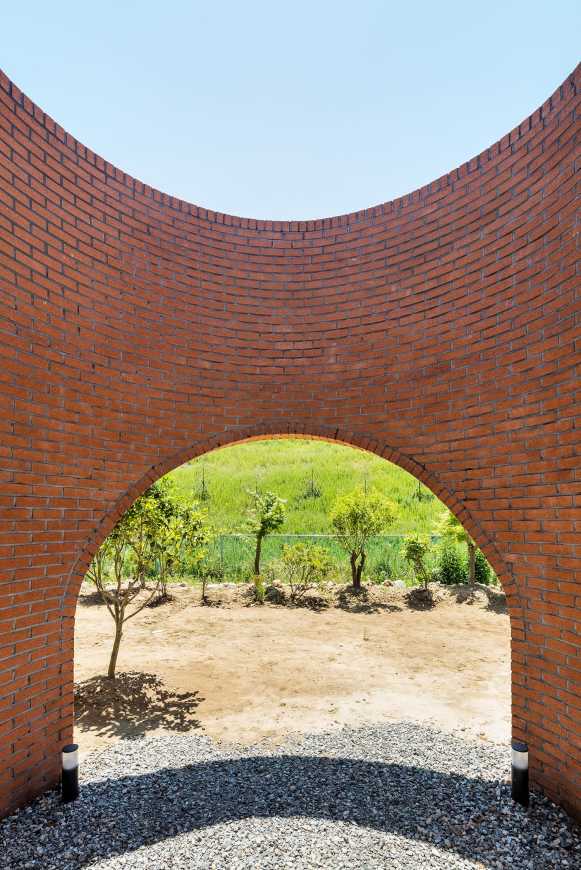
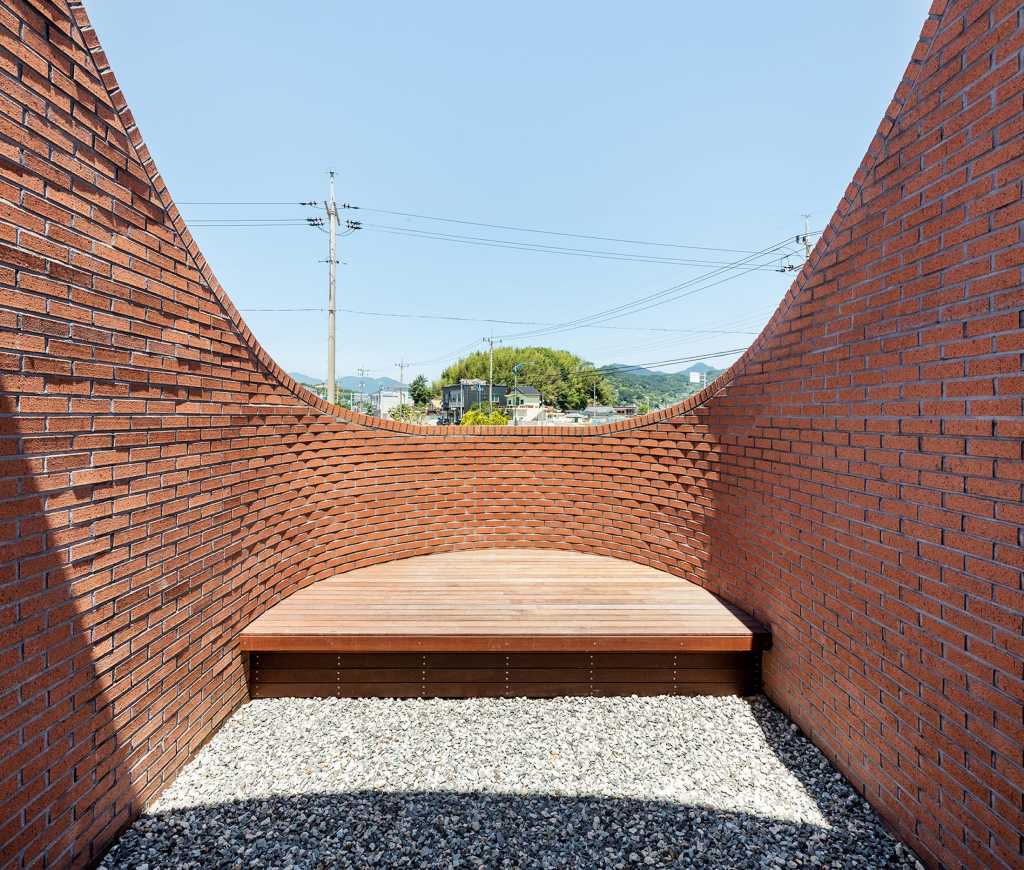

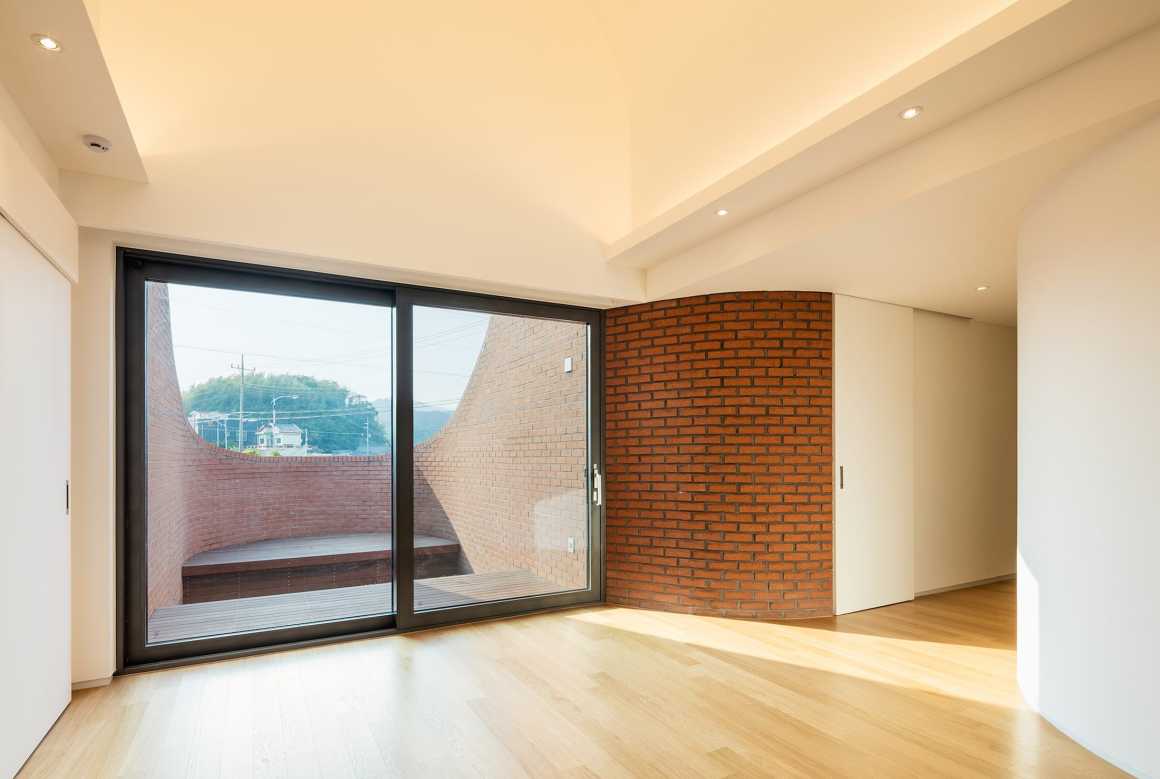
东侧的一间客房也有一个袖珍花园,花园由一面从房子的墙上延伸出来的直径7.5米的半圆形墙壁围合。扩建后的墙体为未来可能因新建火车站而带来的变化做好了准备,阻挡了因城市规划而扩大的街道上的噪音,并确保了居民的隐私。墙的底部有一个小开口,让邻居的狗和猫自由进出。主卧室的一面墙壁和厨房的一面墙壁也以同样的方式将卧室与街道隔开,并分别为厨房提供遮阳和储藏空间。
A guest bedroom on the East also has pocket garden which is enclosed by a semi-circular wall with a diameter of 7.5m, extended from the house’s wall. The extended wall prepares for future changes that may come due to the newly built railway station, blocks noise from the streets that will be expanded due to the city’s plan, and ensures privacy of the residents. There is a small opening on the bottom of the wall for neighboring dogs and cats to freely pass through. One of the master bedroom’s wall and kitchen’s wall grows out similarly to screen the bedroom from the streets and to provide shades and storage space for the kitchen, respectively.
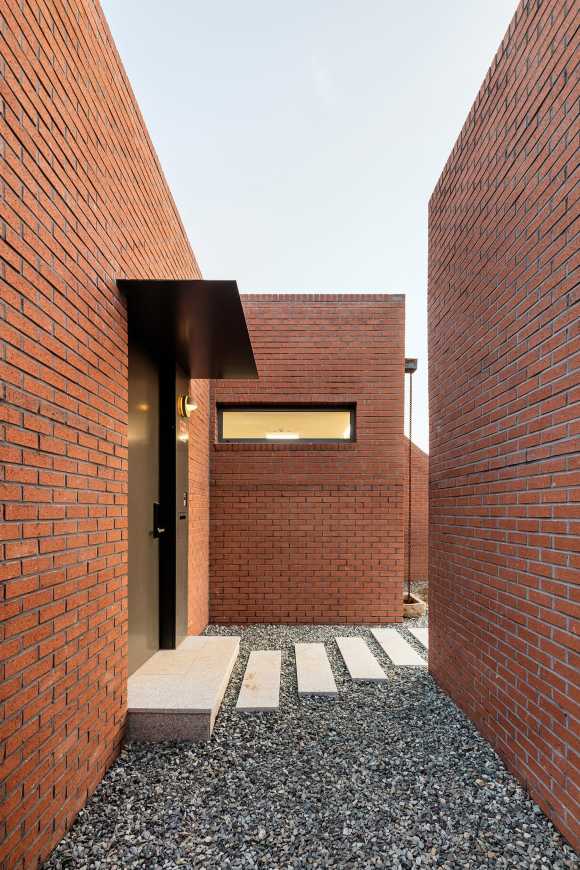
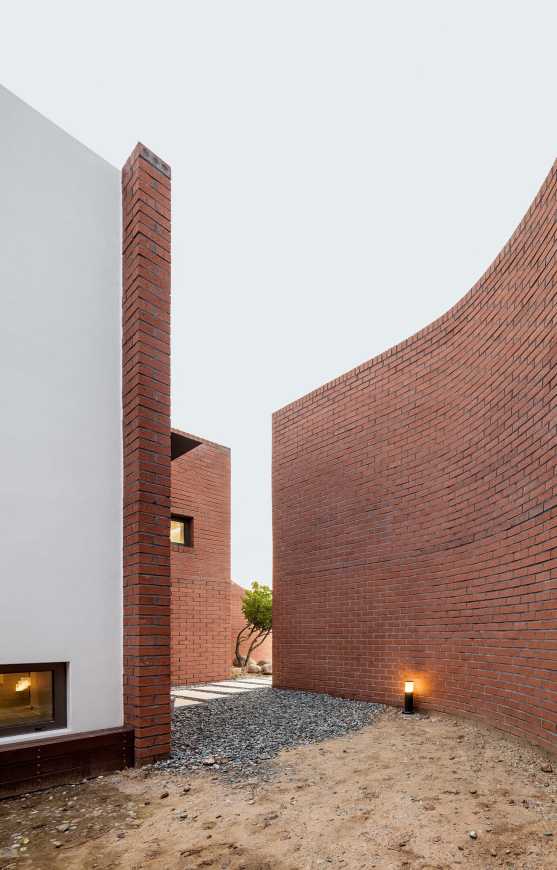
通过将围墙设计一个独立于建筑的实体,可以使房子更具功能性,并获得更灵活的形式。此外,由延伸的曲线墙创造的过渡空间带来了更丰富的空间体验,并在它们融入公共空间时增添了特色。我们期待看到这个有趣的时刻,对看到这两个不同的空间之间的过渡空间和连接点充满兴奋。
By designing fence wall, which is commonly treated as an entity independent from the building, the house could be more functional and acquire more flexible form. Furthermore, the transitory spaces created by extended curvy walls allow richer spatial experience and add character to the moment where they meet with public space. We look forward to see intriguing moments characterized by with intermediate spaces between two different spaces and a connecting point anticipating to be filled with excitement.
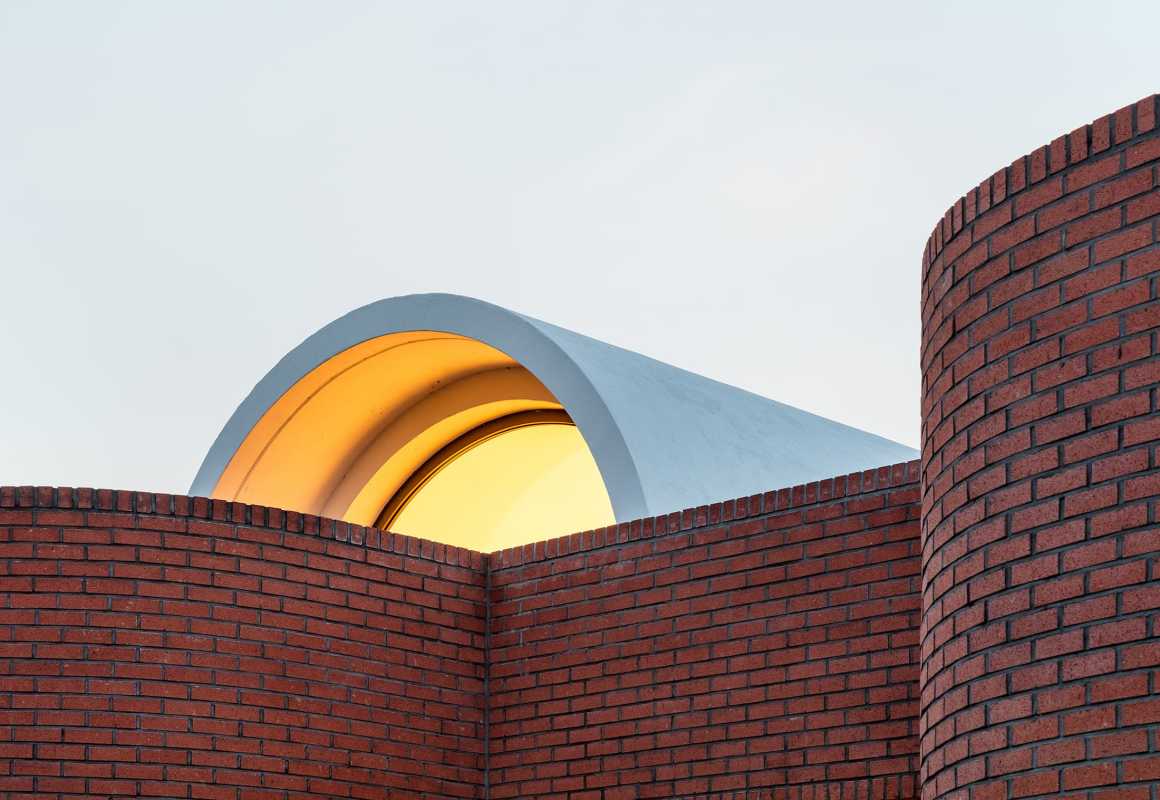
▼平面图 Master plan
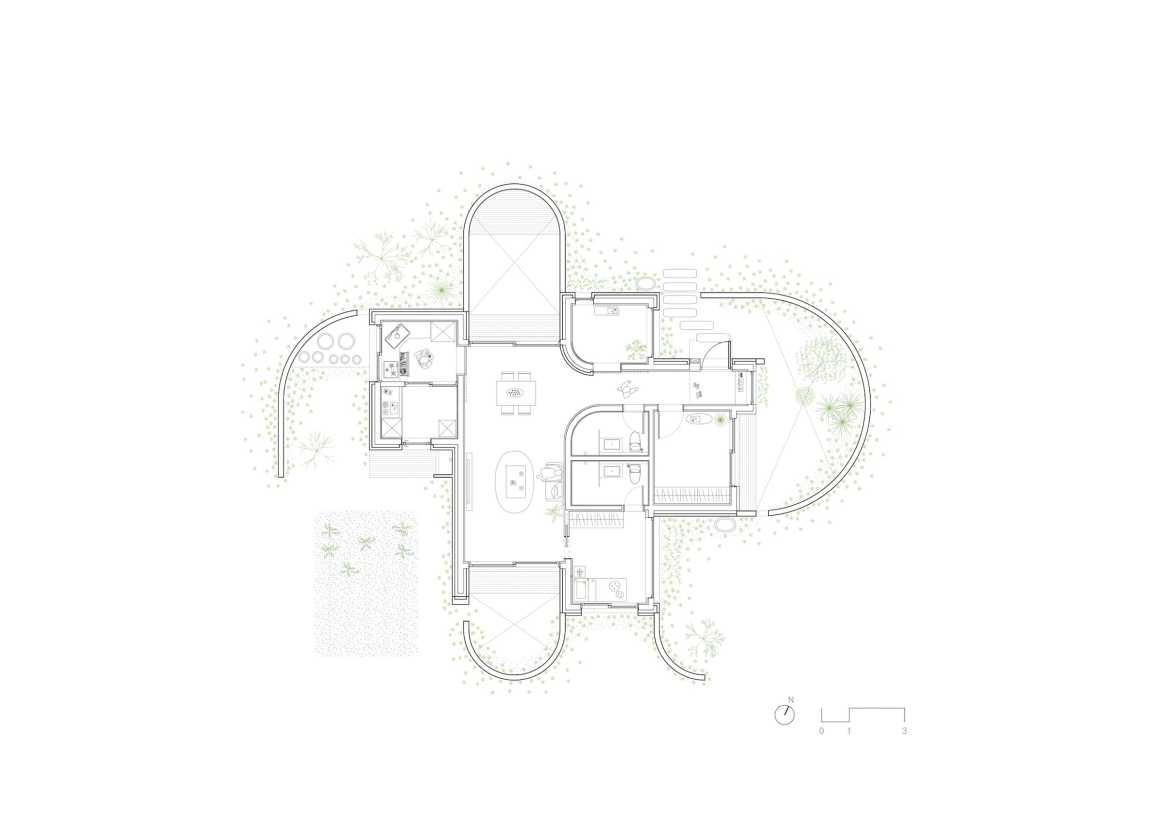
▼剖面图 Sections
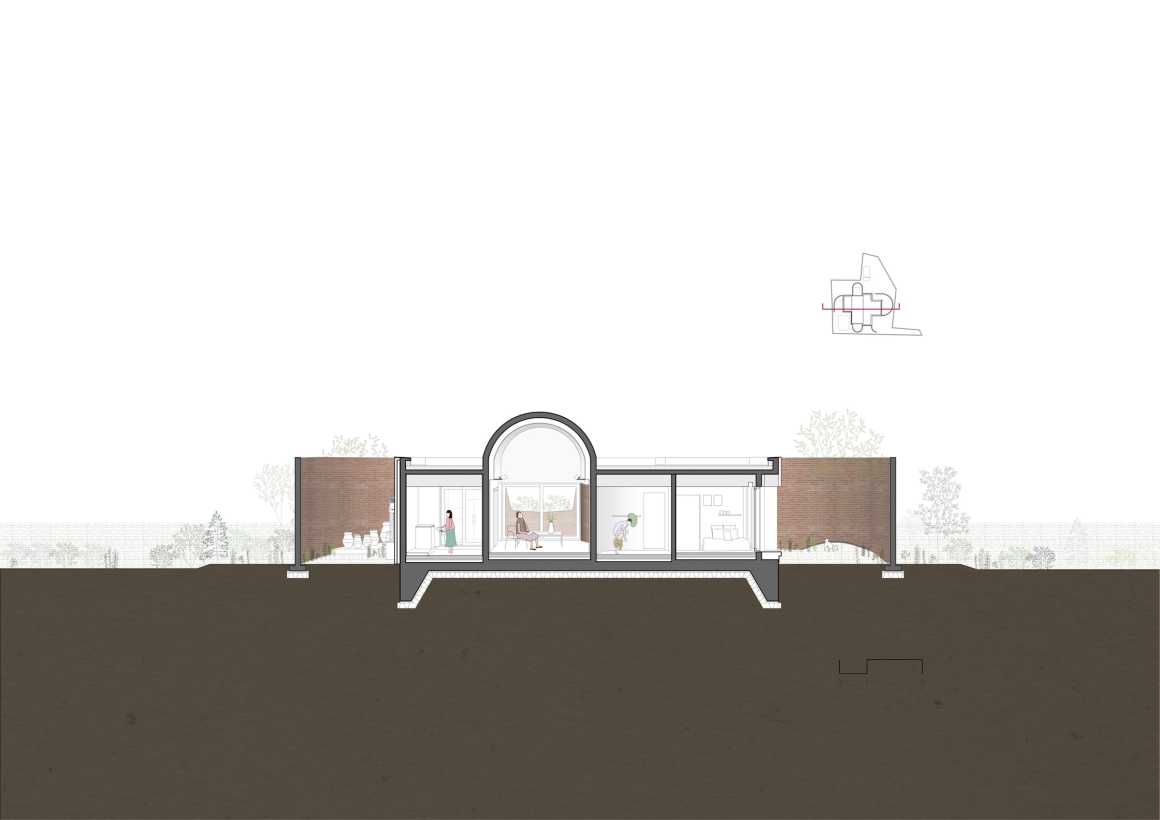
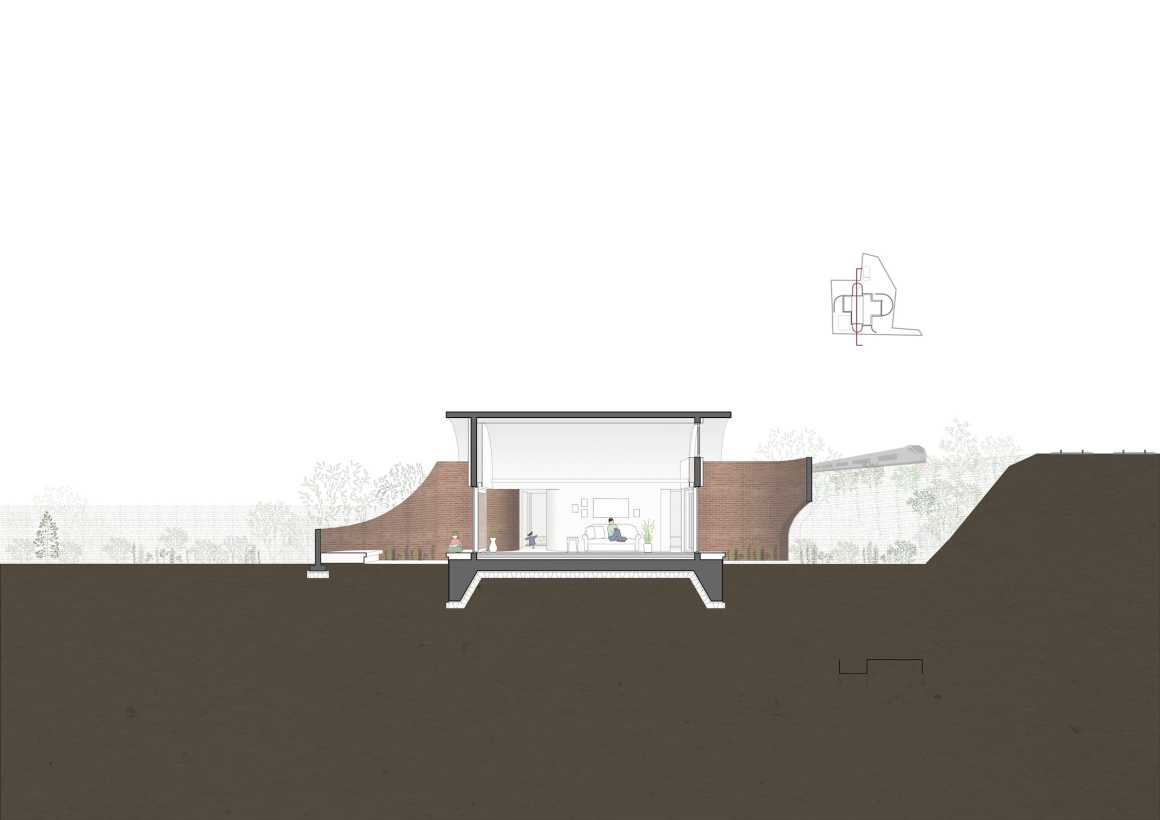
项目名称:THE VAULT HOUSE
设计周期:2016.07 – 2016.08
施工周期:2016.10 – 2017.01
地点:韩国Hadong Gyeongsangnam-do
场地面积:528.50㎡
基地面积:94.59㎡
建筑用地比例:17.89% (最高100%)
总建筑面积:94.59㎡
楼面面积比率:17.89% (最高20%)
建设范围:1 层
结构:钢筋混凝土
完成:Brick
建筑设计:OBBA
建筑负责人:Sojung Lee & Sangjoon Kwak
设计团队:Hyungjin Choi, Daae Kim, Sunhee Yoon
结构工程:THEKUJO(Byungsoon公园
)
电气工程:IECO Engineering
建设:Heenam Yang
摄影:Kyungsub Shin, Jaekyung Kim
Project: THE VAULT HOUSE
Design period: 2016.07 – 2016.08
Construction period: 2016.10 – 2017.01
Location: Hadong, Gyeongsangnam-do, South Korea
Site area: 528.50㎡
Site coverage area: 94.59㎡
Building-to-Land Ratio: 17.89% (Max. 100%)
Total floor area: 94.59㎡
Floor area ratio: 17.89% (Max. 20%)
Building scope: 1F
Structure: RC
Finish: Brick
Architects: OBBA
Architect in charge: Sojung Lee & Sangjoon Kwak
Design team: Hyungjin Choi, Daae Kim, Sunhee Yoon
Structural engineer: THEKUJO (Byungsoon Park)
MEP engineer: IECO Engineering
Construction: Heenam Yang
Photographs: Kyungsub Shin, Jaekyung Kim
更多 Read more about:OBBA




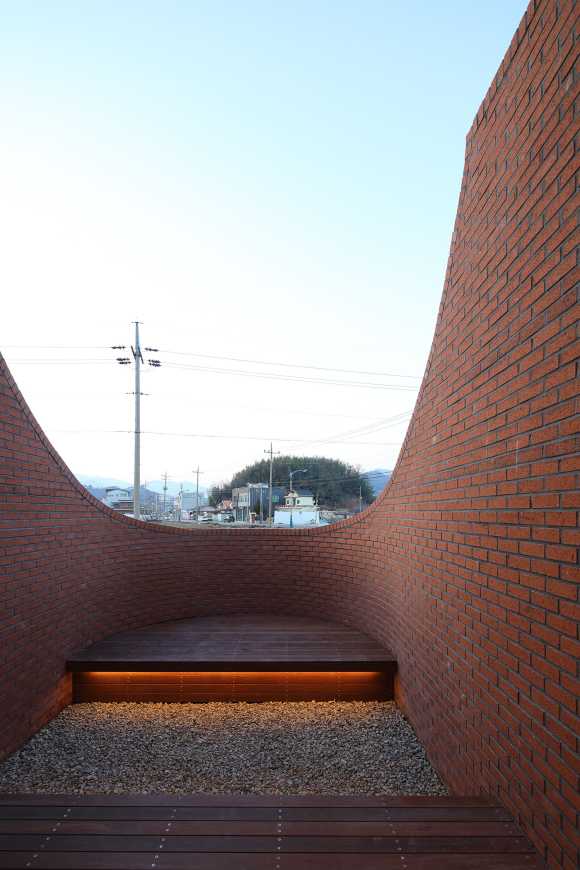

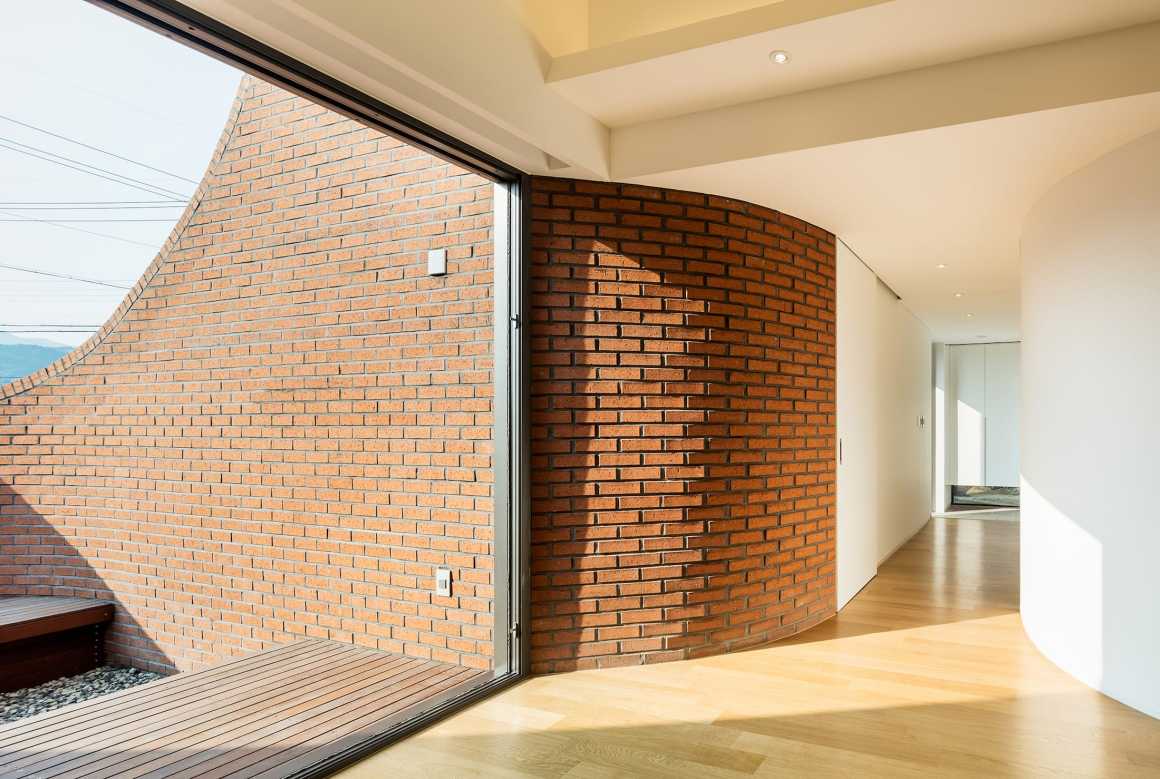
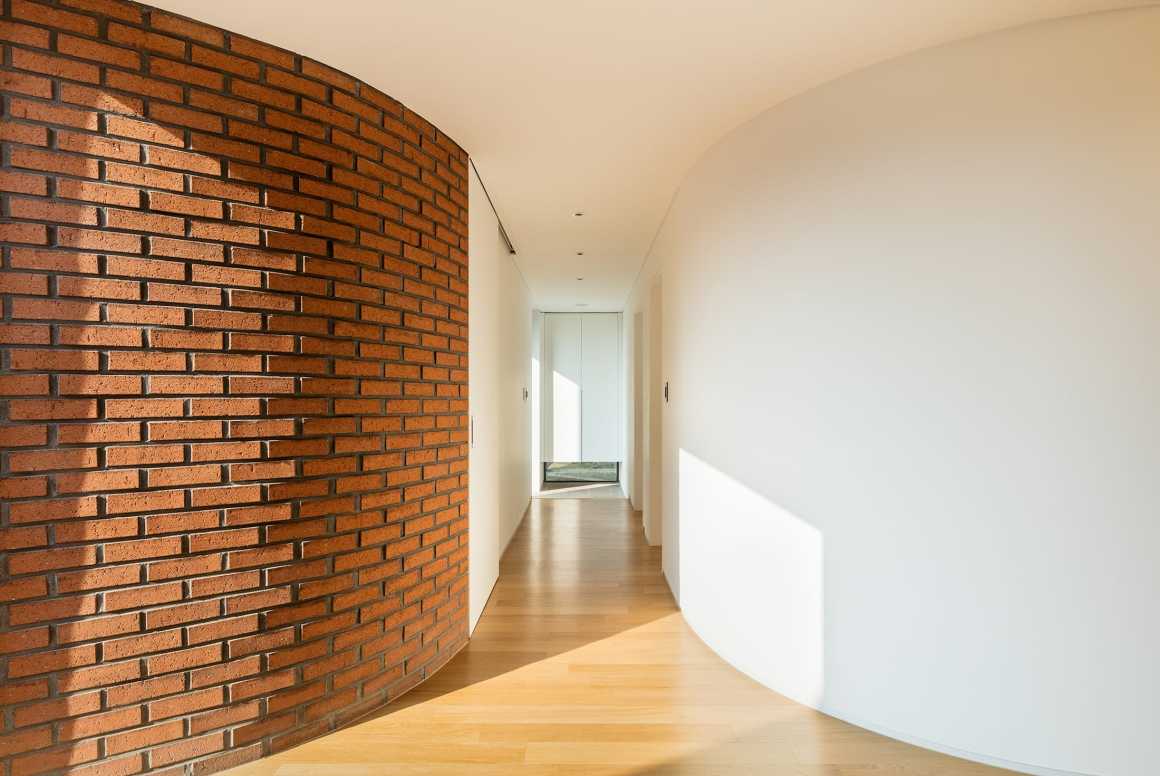


阿根廷科尔多瓦圣贝纳多教堂